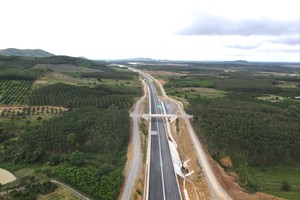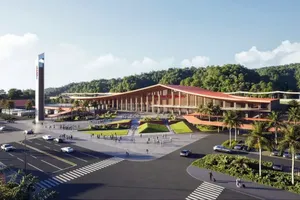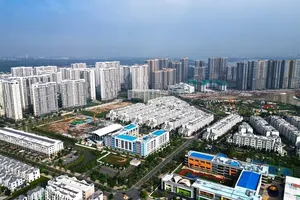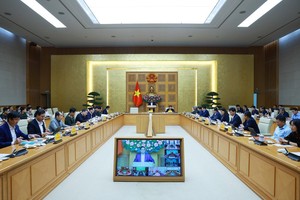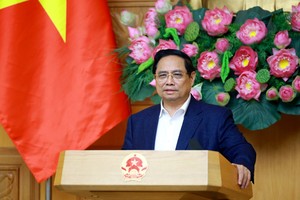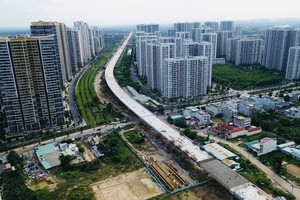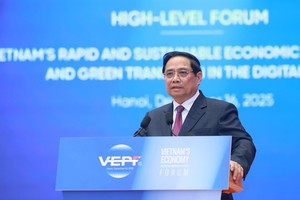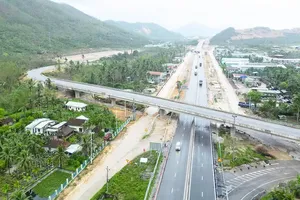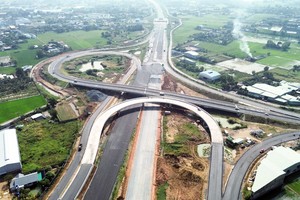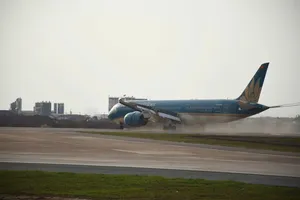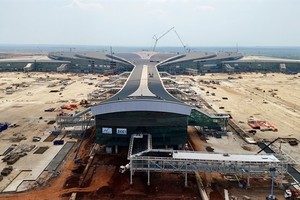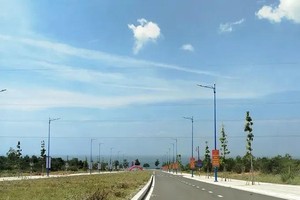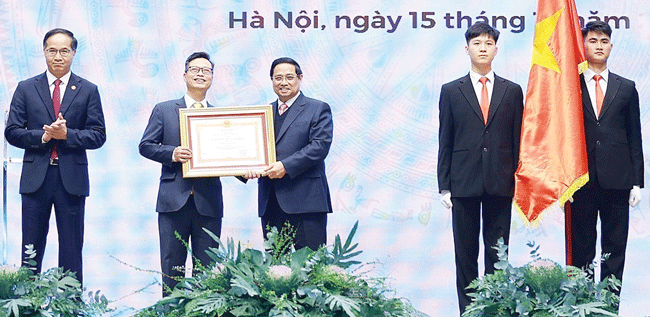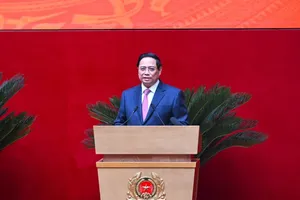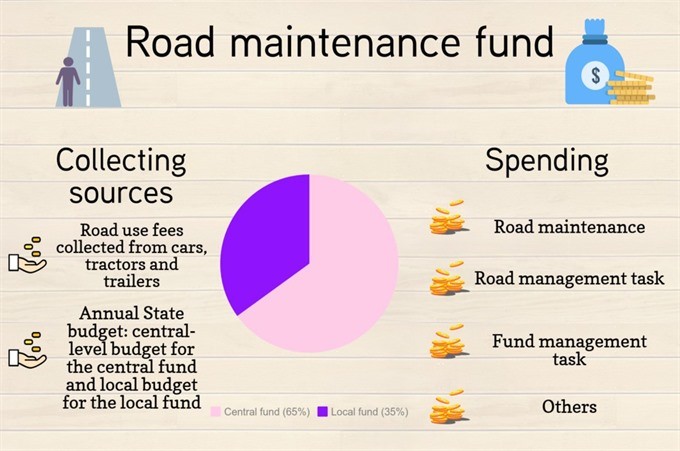
According to the investigation, during 2015-2016, Vietnam Road Directorate allocated funds to works which were not urgent or used funds for the wrong purpose, wasting more than VND45 billion (US$1.9 million).
Also during this period, the fund management council slashed the regular maintenance fee and other related fees by half compared to those set in 2013. The fees disbursed for 2015 and 2016 were reduced to VND25 million ($1,090) per km per year, affecting road repairs.
The SAV found VND9.7 billion ($421,700) of incorrect calculations in accounting and payment of road repairs.
The fund, operated since 2013, increased sharply in 2015 and 2016, the audit revealed. However, several roads were not maintained or repaired. Road markings were not repainted. Road cleanup and grass trimming was done manually instead of by machines.
Le Hoang Minh, Chief of Office of Road Maintenance Fee said that there are nearly 23,000 km of roads nationwide. The total funds allocated for road maintenance must be VND150 million to VND200 million ($6,500-8,700) per km. In fact, on average only VND50 million ($2,170) per km is approved.
“This approved fund meets only one third of demand, resulting in the reduction of spending,” he said.
For example, road markers must be repainted once every three months. Due to budget restraints, they are repainted once every two quarters. The frequency of grass trimming is also reduced, he said.
He added that spending on highway maintenance in 2017 totalled VND7.8 trillion ($340 million). However, the road repair and maintenance work requires VND23 to 25 trillion ($1 billion to $1.08 billion) per year.
Le Hong Diep, head of the Vietnam Road Directorate’s Road Maintenance Department, in charge of planning the fund’s spending said that due to fund shortages, less maintenance work has been done. Cleanup work on some roads located in remote areas must be done manually instead of being done by sweepers.
According to Transport Deputy Minister Nguyen Ngoc Dong, the Finance Ministry recently proposed putting an end to the road maintenance fund’s operation. Road use fees collected from vehicles are proposed to be directed to the State budget. The State will balance the spending for road maintenance.
Bui Danh Lien, Chairman of the Hanoi Transport Association said that the biggest problem is that the fund spending is not transparent.
Residents and drivers protest against a lot of fees they have to pay including road maintenance fees and Build-Operate-Transfer fee. But it is not announced how the fees are allocated, he said, adding that collection and spending of fees collected from the public must be publicised.
Lien said that removing the road maintenance fund is not reasonable at this time. If the fund is removed, there will be no funds for repairing mountainous roads damaged by storms.
“The association agrees to maintain the fund but it must be transparent,” he said.
The association also proposed that the fund management should be assigned to one agency, such as the Ministry of Finance, then this agency would allocate the fund to localities and sectors, he said.
Le Hoang Minh said that sources for the fund have increased five to 10 percent each year thanks to the increasing number of cars.
According to a project enhancing capacity and sources for the road maintenance fund to be submitted to Prime Minister Nguyen Xuan Phuc in the second or third quarter of this year, the fund will not need additional budget sourced from the State in the period between 2022 and 2025.
The road maintenance fund will meet 70 to 80 percent of the demand instead of the current rate of 30 to 40 percent.
To stay independent from the State budget, the road maintenance fund needs mechanisms to call for funding from other sources such as the World Bank or the policy of leasing transport infrastructure, he said.
